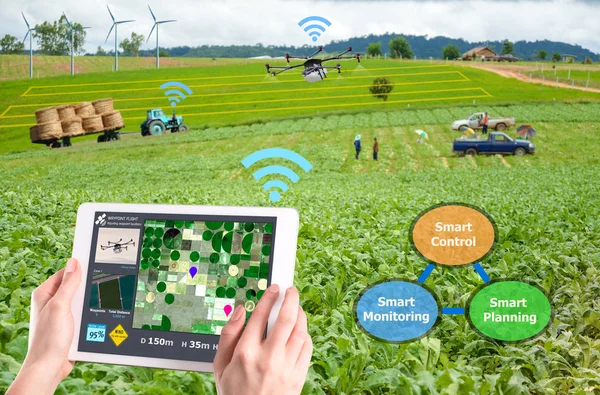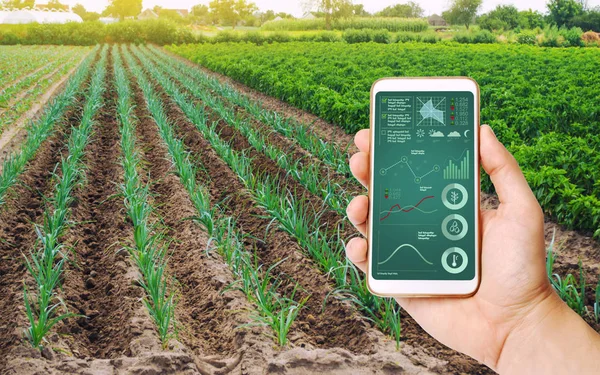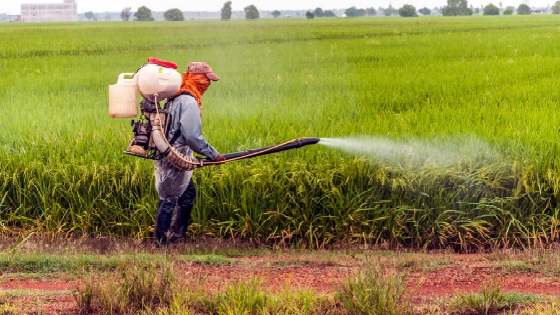Are you wondering why you need to use Big Data on your farm or agriculture business?
In the age of technological advancement, the agricultural sector is undergoing a transformative revolution driven by the integration of big data. Big data, with its ability to process vast amounts of information, analyze patterns, and generate actionable insights, is playing a pivotal role in shaping the future of farming
This blog post explores the profound impact of big data on agricultural decision-making processes, uncovering how it enhances efficiency, sustainability, and productivity in the field.
- Big Data’s Impact on Agricultural Efficiency
- Precision Farming: Optimising Resource Utilisation
- Data-Driven Crop Management: Enhancing Yield and Quality
- Predictive Analytics in Pest and Disease Management
- Supply Chain Optimisation: From Farm to Fork
- Climate Resilience: Adapting Agriculture to Changing Conditions
- Empowering Farmers through Data Literacy and Connectivity
- Agrifuture: The Emerging Trends in Agritech, Big Data and Ethics
Big Data’s Impact on Agricultural Efficiency
Integrating big data into agricultural decision-making processes marks a transformative era for the farming industry. Precision farming, data-driven crop management, predictive analytics in pest and disease control, supply chain optimisation, and climate resilience are just a few facets of how big data is reshaping the landscape of agriculture. The ability to collect, analyse, and apply data-driven insights empowers farmers to make informed decisions that enhance efficiency, sustainability, and productivity as outlined below.
Precision Farming: Optimising Resource Utilisation
One of the key areas where big data is revolutionizing agricultural practices is precision farming. Traditional farming methods often involve a one-size-fits-all approach, leading to inefficient use of resources such as water, fertilizers, and pesticides. Precision agriculture, fueled by big data analytics, enables farmers to tailor their approach based on specific conditions within their fields. Sensors, drones, and satellite imagery collect real-time data on soil quality, moisture levels, and crop health, allowing farmers to make precise decisions. This optimization not only enhances productivity but also minimizes environmental impact by reducing the use of agrochemicals.
Data-Driven Crop Management: Enhancing Yield and Quality

Experience, intuition, and traditional knowledge have historically influenced agricultural decision-making. However, big data is changing this paradigm by introducing a data-driven approach to crop management. Advanced analytics tools process data from various sources, including climate patterns, historical crop performance, and market trends. By analysing this information, farmers can make informed decisions about the types of crops to plant, the best planting times, and optimal harvesting periods. This not only enhances yield but also contributes to the production of higher-quality crops that meet market demands.
Predictive Analytics in Pest and Disease Management
Pests and diseases pose significant threats to crop yields, often causing substantial economic losses for farmers. Big data, through predictive analytics, is proving to be a game-changer in pest and disease management. By analysing historical data on pest occurrences, weather patterns, and crop health, predictive models can forecast potential outbreaks. Armed with this information, farmers can take preemptive measures, such as targeted pesticide applications or crop rotation strategies, to mitigate the impact of pests and diseases. This proactive approach not only safeguards crop yields but also reduces the reliance on chemical interventions, promoting sustainable farming practices.
Supply Chain Optimisation: From Farm to Fork
Agricultural decision-making extends beyond the fields and into the broader supply chain. Big data is instrumental in optimising the movement of agricultural products from farm to consumer. By integrating data from various stakeholders, including farmers, distributors, and retailers, supply chain managers can make more informed decisions about inventory levels, transportation routes, and market demand. This ensures that agricultural products reach consumers efficiently, minimising waste and maximising the economic value of the entire supply chain. The result is a more resilient and responsive agricultural ecosystem capable of meeting the demands of a dynamic market.
Climate Resilience: Adapting Agriculture to Changing Conditions
Climate change poses a significant threat to global agriculture, with shifts in temperature, precipitation patterns, and extreme weather events impacting crop yields and food security. Big data plays a crucial role in helping farmers adapt to these changing conditions. By analysing historical weather data and leveraging climate models, farmers can anticipate changes in growing seasons and adjust planting schedules accordingly. Furthermore, data-driven decision-making enables the identification of climate-resilient crop varieties and the implementation of adaptive practices, ensuring agricultural systems remain productive in the face of climatic uncertainties.
Empowering Farmers through Data Literacy and Connectivity
While big data holds immense potential for transforming agriculture, its impact depends on the accessibility and literacy of the farming community. Recognising this, efforts are underway to bridge the digital divide in agriculture. Providing farmers with the necessary tools, training, and connectivity is essential to unlock the full potential of big data. Initiatives that focus on enhancing data literacy among farmers empower them to leverage technology for better decision-making. Additionally, improving connectivity in rural areas ensures that even remote farmers can access and contribute to the wealth of agricultural data, fostering a more inclusive and collaborative farming ecosystem.
Agrifuture: The Emerging Trends in Agritech, Big Data and Ethics
The emergence of agritech has brought about exciting advancements, particularly in the utilization of big data to address agricultural challenges. While big data offers innovative solutions such as precision farming and predictive analytics, its extensive collection and potential misuse pose a dual threat. As the industry evolves, it becomes imperative to manage big data responsibly, balancing its benefits with the need for data privacy and security within the agricultural sector. Here are 3 key areas to keep an eye on
Ethical Considerations in Agricultural Data Use
As the agricultural sector becomes increasingly reliant on big data, ethical considerations come to the forefront. Issues related to data ownership, privacy, and responsible use must be addressed to ensure that the benefits of data-driven agriculture are realised without compromising integrity. Clear guidelines and regulations are needed to govern the collection, storage, and sharing of agricultural data. Striking a balance between innovation and ethical considerations is crucial for building trust among farmers, consumers, and other stakeholders. A responsible approach to data usage safeguards against potential misuse and fosters a sustainable and ethical foundation for the agricultural data revolution.
Future Trends: Artificial Intelligence and Machine Learning in Agriculture
As we delve deeper into the era of big data in agriculture, the integration of artificial intelligence (AI) and machine learning (ML) emerges as the next frontier. These advanced technologies have the potential to revolutionise decision-making processes by analysing vast datasets at unprecedented speeds. AI and ML can provide real-time insights, automate routine tasks, and offer predictive analytics on a scale previously unimaginable. From autonomous farming equipment to crop yield predictions based on complex algorithms, the synergy of big data, AI, and ML is set to redefine the very fabric of modern agriculture, ushering in an era of unparalleled efficiency and innovation.
Global Collaboration for Agricultural Data Sharing
The impact of big data in agriculture transcends national boundaries. To fully harness its potential, global collaboration and data sharing are imperative. International partnerships can facilitate the exchange of valuable insights, best practices, and data sets, enabling farmers worldwide to benefit from a collective pool of knowledge. Platforms that promote collaboration, such as shared databases and open-access research initiatives, pave the way for a more interconnected and resilient global agricultural community. By breaking down silos and fostering collaboration, the agricultural sector can unlock new possibilities and address shared challenges on a scale that was previously unattainable
conclusion
As we grapple with the complexities of global food production, harnessing the power of big data is not just a choice but a necessity for ensuring a resilient and sustainable future for agriculture. The journey towards a data-driven agricultural revolution has only just begun, and the possibilities for innovation and improvement are vast. Embracing the potential of big data is not only a boon for farmers but also a crucial step towards ensuring food security for a growing global population.
This article was written by Eliza Cochrane, content writer from Apton Plant, farming machinery suppliers.



